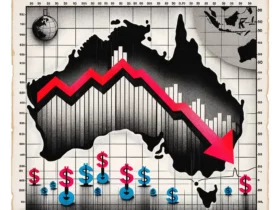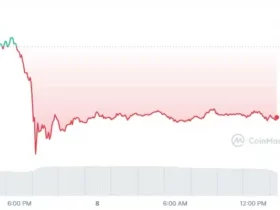In an exclusive interview with crypto.news, Dominic Longman, Senior Executive Officer of Binance Abu Dhabi, discusses the rising institutional interest in crypto, potential crypto ETFs, and the region’s efforts to attract web3 talent.
In February, the Financial Action Task Force (FATF) removed the UAE and several other jurisdictions from its greylist, acknowledging the region’s enhanced AML/CFT regime. This move reflects the UAE’s commitment to addressing strategic deficiencies identified by the FATF in February 2022.
Crypto.news Interview with Dominic Longman
Q: With the UAE recently being excluded from the FATF “greylist,” it appears that the region is gaining significant traction. For example, U.S.-headquartered companies like Chainalysis are now establishing offices in the area. Has this development led to a shift in crypto adoption among traditional companies such as venture capital firms, pension funds, and banking giants, or has the exclusion from the greylist not significantly impacted the local perception of crypto?
A: The UAE’s removal from the FATF greylist is a positive development for the region’s financial landscape and solidifies the UAE’s position as a leading economic power in MENA [the Middle East and North Africa]. It highlights the country’s dedication to improving its regulatory framework and transparency. While it’s challenging to quantify the direct impact on institutional crypto adoption, the international recognition of the UAE’s progress in combating financial crimes like money laundering is encouraging.
We are witnessing increasing institutional interest and activity in the crypto space, which could pave the way for broader adoption among various financial institutions over time. The UAE is at the forefront of global crypto adoption and has established itself as a major crypto hub. Binance is proud to be part of this ecosystem, facilitating collaboration between key stakeholders, including governments, regulators, innovators, startups, and established organizations to accelerate blockchain adoption in the region.
Q: Currently, there are no Bitcoin exchange-traded funds (ETFs) accessible in the UAE. Given the recent approvals of Bitcoin ETFs in the U.S. and Hong Kong, what are the chances that UAE authorities might change their approach? Additionally, how significant could the UAE market become for crypto, considering that Hong Kong, despite its diverse offerings with Bitcoin and Ethereum ETFs, has not attracted as much capital as anticipated?
A: The approval of Bitcoin ETFs in the U.S. and Hong Kong marks a significant milestone for the crypto industry, reflecting growing acceptance and recognition. The introduction of a Bitcoin spot ETF lends legitimacy to the digital asset industry and builds trust among a broader audience, sparking a surge in trading volumes and increasing accessibility to crypto investments for retail and institutional investors alike. While the UAE currently does not have Bitcoin ETFs, regulatory approaches can evolve based on global trends and local market demands.
The UAE has shown a proactive stance towards blockchain and crypto innovations, indicating potential for future developments in this area. The UAE’s strategic position and forward-thinking policies on virtual assets have positioned the country at the forefront of crypto adoption, as highlighted by the Henley & Partners Crypto Wealth Report 2023, which noted the UAE’s leading cryptocurrency adoption rate worldwide.
Q: In Europe, many small to mid-sized crypto startups tend to register in Lithuania, Estonia, or other Eastern European countries due to their relatively simplified regulatory approach to crypto. What challenges, if any, do companies face when starting or developing their crypto businesses in Dubai?
A: Navigating regulatory requirements and ensuring compliance can be complex, but the UAE government is actively creating a dynamic environment for crypto startups by developing robust infrastructure and supportive initiatives that provide clarity and streamline business setup processes.
Major industry players and regulators such as VARA are moving towards a regulated model for virtual assets, covering areas like access to banking services, regulatory capital requirements, and operational costs. Collaborative approaches between larger firms and smaller startups for compliance and legal processes are being implemented.
The influx of crypto firms into the UAE has also enhanced talent attraction, creating a growing talent pool supported by government-backed coding schools and other initiatives like visa programs, making it easier for crypto firms to find and retain the necessary talent.
Binance has been expanding its presence in the UAE, particularly in Dubai, due to the Emirate’s leading role in web3 development and favorable regulatory environment. Government initiatives like the Dubai Blockchain Strategy and the Metaverse Strategy further underscore the UAE’s commitment to driving innovation in the MENA region.









Leave a Reply